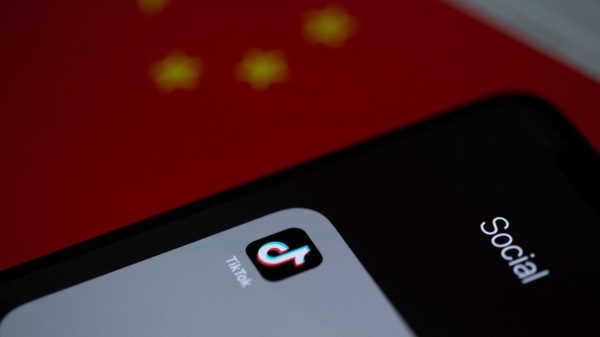Opinion
Judge Andrew P. Napolitano: Can Congress Ban TikTok?

From Heartland Daily News
“Congress shall make no law … abridging the freedom of speech.”
–First Amendment to the U.S. Constitution
When James Madison set about to draft the Bill of Rights — the first 10 amendments to the U.S. Constitution — he was articulating what lawyers and philosophers and judges call “negative rights.” A positive right grants a privilege, like a driver’s license. A negative right restrains the government from interfering with a preexisting right. In order to emphasize his view that the freedom of speech preexisted the government, Madison insisted that the word “the” precede “freedom of speech” in the First Amendment.
If the freedom of speech preceded the government, where did it come from?
Speech is a natural right; it comes from our humanity. The framers of the Constitution and the ratifiers of the Bill of Rights understood and recognized this. Congress doesn’t grant the freedom of speech; rather it is prohibited absolutely from interfering with it. In the years following the ratification of the 14th Amendment, the courts began applying the restrictions in the First Amendment to the states and their municipalities and subdivisions.
Today, the First Amendment bars all government — federal, state and local — and all branches of government — legislative, executive and judicial — from interfering with the freedom of speech.
You’d never know this listening to Congress today. The same Congress that can’t balance a budget or count the number of foreign military bases the feds own, that thinks it can right any wrong and tax any event, that has borrowed over $34 trillion and not paid back any of it; the same Congress now wants to give the President of the United States — whomever might occupy that office — the lawful power to suppress websites he thinks are spying on their users or permitting foreign governments to influence what folks see on the sites. All this is an effort to ban the popular website for young folks called TikTok and force its owners to sell its assets.
Here is the backstory.
Throughout American history, we have suffered from mass fears. In the 1790s, it was fear of the French and of Native Americans. In the 1860s, it was fear of African Americans and fear of Confederates. In the 1900s, it was fear of anarchists, Nazis and Communists. In the first quarter of the present century, the government has whipped up fear of terrorists, Russians, Saddam Hussein, Vladimir Putin and now the Chinese.
In his dystopian novel, “1984,” George Orwell analyzed the totalitarian mind and recognized the need that totalitarians have for fear and hatred. They know that when folks are afraid, they will bargain away the reality of liberty for the illusion of safety. Without fear and hatred, totalitarians have fewer tools for control of the population.
What is the government’s problem with TikTok? The feds want to use fear and hatred of the Chinese government in order to regulate the sources of data and information that Americans can consult. They have projected upon the government of China the very same unlawful and unconstitutional assaults on natural rights that the feds themselves perpetrate upon us.
Thus, in order to gain control over the American public, the deep state — the parts of the government that do not change, no matter which political party is in power — and its friends in Congress have advanced the myth that the Chinese government, which commands the loyalty of the owners of TikTok, might use the site to pass along misinformation or to spy on its users. The key word here is “might,” as the intelligence officials who testified to Congress on this were unable to produce any solid evidence — just fear — that the Chinese government is doing this.
You can’t make this up.
Remember the bumper stickers from the 1970s: “Don’t steal. The government hates competition!” I thought of that line when analyzing this. Why? Because the federal government itself spies on every American who uses a computer or mobile device. The federal government itself captures every keystroke touched on every device in the U.S. The federal government itself captures all data transmitted into, out of and within the U.S. on fiber-optic cables. And the federal government itself told the Supreme Court earlier this week that it needs to be able to influence what data is available on websites in order to combat misinformation.
The federal government basically told the court that it — and not individual persons — should decide what we can read and from what sources. What the federal government did not reveal is its rapacious desire to control the free market in ideas.
Now back to the First Amendment.
The principal value underlying the freedom of speech is free will. We all have free will to think as we wish, to say what we think, to read what we want, to publish what we say. And we can do all this with perfect freedom. We don’t need a government permission slip. The whole purpose of the First Amendment is to guarantee this freedom by keeping the government out of the business of speech — totally and completely. This is the law of the land in modern Supreme Court jurisprudence.
Were this not the law, then the government could suppress the speech it hates and fears and support the speech of its patrons. And then the values that underly the First Amendment would be degraded and negated. The government has no moral or constitutional authority to spy on us or to influence our thoughts. Period.
Does the government work for us or do we work for the government? Have we consented to a nullification of free speech in deference to whomever might be living in the White House? Why do we repose the Constitution into the hands of those who subvert it?
To learn more about Judge Andrew Napolitano, visit https://JudgeNap.com.
COPYRIGHT 2024 ANDREW P. NAPOLITANO
DISTRIBUTED BY CREATORS.COM
For more great content from Rights, Justice & Culture News.
Artificial Intelligence
UK Police Pilot AI System to Track “Suspicious” Driver Journeys
AI-driven surveillance is shifting from spotting suspects to mapping ordinary life, turning everyday travel into a stream of behavioral data
|
|
Business
Judge Declares Mistrial in Landmark New York PRC Foreign-Agent Case

U.S. District Judge Brian Cogan declared a mistrial Monday afternoon in the high-profile foreign-agent and corruption case against former New York state official Linda Sun and her husband Chris Hu, after jurors reported they were hopelessly deadlocked on all 19 counts.
After restarting deliberations Monday morning with an alternate juror, the panel sent a note to Judge Cogan stating:
“Your honor, after extensive deliberations and redeliberations the jury remains unable to reach a unanimous verdict. The jurors’ positions are firmly held.”
Cogan brought the jury into court and asked the foreman whether they had reached agreement on any counts. They replied that they were deadlocked on every one. The judge then declared a mistrial.
Assistant U.S. Attorney Alexander Solomon immediately told the court that the government intends to retry the case “as soon as possible.” A status conference is scheduled for January 26, 2026, to determine next steps.
Jury selection began November 10, 2025, and the government called 41 witnesses to the stand, compared with eight for the defense and one rebuttal witness for the prosecution. Deliberations began on December 12, and by this afternoon the jurors had sent three notes to the court — each indicating deadlock.
As The Bureau reported in its exclusive analysis Friday, the panel’s fracture had become visible as jurors headed into a second week of deliberations in a landmark foreign-agent and corruption trial that reached into two governors’ offices — a case asking a jury of New Yorkers to decide whether Sun secretly served Beijing’s interests while she and Hu built a small business and luxury-property empire during the pandemic, cashing in on emergency procurement as other Americans were locked down.
Prosecutors urged jurors to accept their account of a dense web of family and Chinese-community financial transactions through which Sun and Hu allegedly secured many millions of dollars in business deals tied to “United Front” proxies aligned with Beijing. The defense, by contrast, argued that Sun and Hu were simply successful through legitimate, culturally familiar transactions, not any covert scheme directed by a foreign state.
Sun and Hu face 19 charges in total, including allegations that Sun acted as an unregistered foreign agent for the People’s Republic of China; visa-fraud and alien-smuggling counts tied to a 2019 Henan provincial delegation; a multimillion-dollar pandemic PPE kickback scheme; bank-fraud and identity-misuse allegations; and multiple money-laundering and tax-evasion counts.
Prosecutors have argued that the clearest money trail ran through New York’s COVID procurement scramble and a pair of Jiangsu-linked emails. In closing, Solomon told jurors that Sun’s “reward” for steering contracts was “millions of dollars in kickbacks or bribes,” contending the money was routed through accounts opened in Sun’s mother’s name and via friends and relatives.
The government has tied those claims to a broader narrative — laid out in Solomon’s summation and dissected in The Bureau’s reporting — that Sun functioned as a “trusted insider” who repurposed state access and letterhead to advance Beijing’s priorities, including by allegedly forging Governor Kathy Hochul’s signature on invitation letters used for Chinese provincial delegations, while keeping those relationships hidden from colleagues. The defense, in turn, urged jurors to reject the government’s picture of clandestine agency and argued prosecutors had overreached by treating ordinary diaspora networking, trade promotion, and pandemic procurement as criminal conduct — insisting none of the evidence proved the “direction or control” element central to the Foreign Agents Registration Act.
Whether a future jury will see the same evidence as corruption and covert foreign agency or as culturally familiar commerce and politics — will now be tested again, on a new timetable, in a courtroom that has already shown just how difficult this record is to unanimously interpret.
The Bureau is a reader-supported publication.
To receive new posts and support my work, consider becoming a free or paid subscriber.
-

 Alberta2 days ago
Alberta2 days agoAlberta’s huge oil sands reserves dwarf U.S. shale
-

 Energy2 days ago
Energy2 days agoCanada’s sudden rediscovery of energy ambition has been greeted with a familiar charge: hypocrisy
-

 Business2 days ago
Business2 days agoOttawa Pretends To Pivot But Keeps Spending Like Trudeau
-

 Agriculture13 hours ago
Agriculture13 hours agoWhy is Canada paying for dairy ‘losses’ during a boom?
-

 Daily Caller2 days ago
Daily Caller2 days agoParis Climate Deal Now Decade-Old Disaster
-

 Automotive1 day ago
Automotive1 day agoFord’s EV Fiasco Fallout Hits Hard
-

 Censorship Industrial Complex2 days ago
Censorship Industrial Complex2 days agoHow Wikipedia Got Captured: Leftist Editors & Foreign Influence On Internet’s Biggest Source of Info
-

 Crime2 days ago
Crime2 days agoThe Uncomfortable Demographics of Islamist Bloodshed—and Why “Islamophobia” Deflection Increases the Threat









